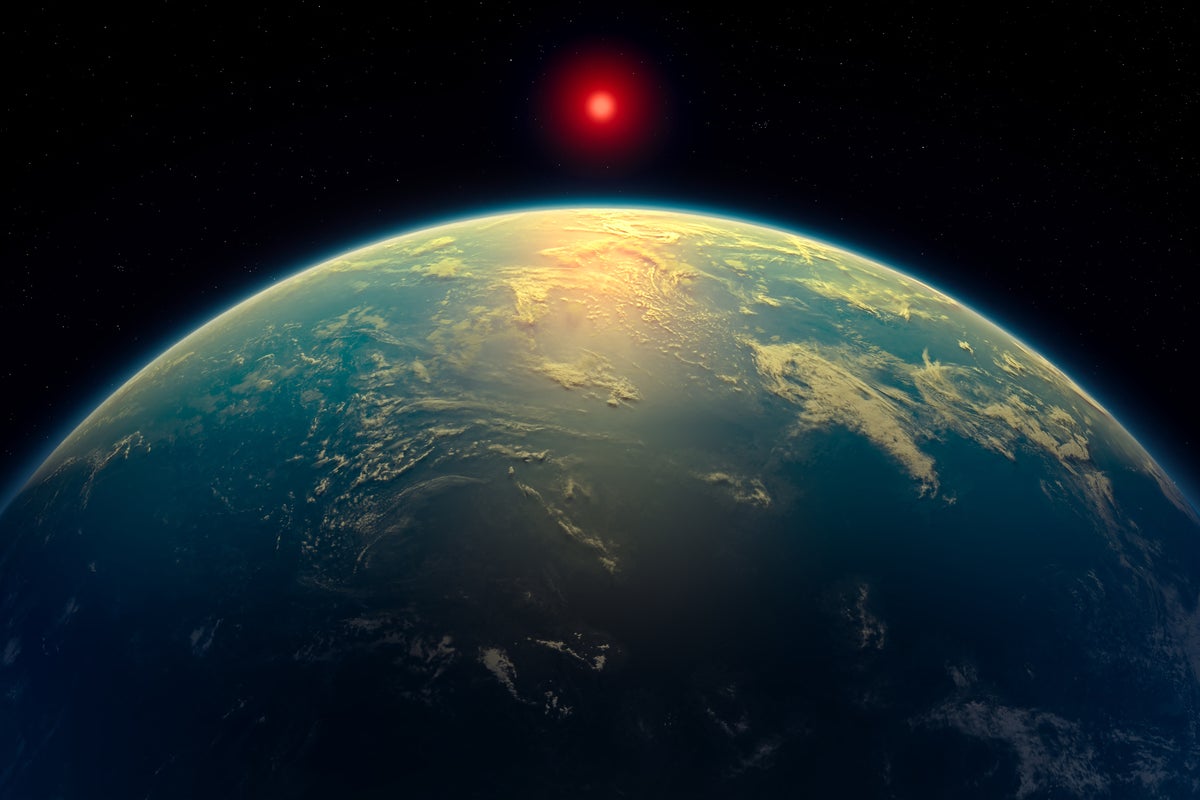Scientists have detected what they believe to be a potential sign of life on a planet in a different solar system in the “strongest indicator” that life exists beyond Earth. Researchers analyzing K2-18b, which orbits a star 120 lightyears from Earth, have found a molecule that on Earth is associated with living organisms in the planet’s atmosphere. The potentially Earth-shattering study was published Wednesday in the Astrophysical Journal Letters.
"This is the strongest evidence yet there is possibly life out there. I can realistically say that we can confirm this signal within one to two years,” astronomer Nikku Madhusudhan, a professor at the University of Cambridge and the lead author of the new study, told the BBC . The findings could even suggest that K2-18b is covered with an ocean, home to living organisms.

His team observed large amounts of chemicals that, when found on Earth, are produced by marine phytoplankton and bacteria; the quantity of these molecules found in K2-18b’s atmosphere is thousands of times higher than what’s on Earth, he said. "So, if the association with life is real, then this planet will be teeming with life," he told the BBC. "If we confirm that there is life on K2-18b it should basically confirm that life is very common in the galaxy.
” “It is in no one’s interest to claim prematurely that we have detected life,” Madhusudhan told the New York Times . Mans Holmberg, a co-author of the study and a postdoctoral researcher at the Space Telescope Science Institute, told The Washington Post that the observations suggest the planet could boast a hydrogen-rich atmosphere and an ocean deeper than any on Earth. “Everything about this system is quite alien.
We don’t have anything like it in the solar system,” he said. Other experts in the field remarked on the potential magnitude of the revelation, but urged caution before drawing any sweeping conclusions. “It’s not nothing,” Stephen Schmidt, a planetary scientist at Johns Hopkins University, told the Times .
“It’s a hint. But we cannot conclude it’s habitable yet.” "I think this is one of those situations where extraordinary claims require extraordinary evidence," Laura Kreidberg, an astronomer at the Max Planck Institute for Astronomy in Germany, told NPR .
"I'm not sure we're at the extraordinary evidence level yet." There’s an ongoing debate about the presence of the molecules on the planet as well as what they could mean, and if they are in fact there. For example, the chemicals could relate to a process unrelated to living organisms on K2-18b.
The research team agreed. “Either we are looking at a new chemical process that we haven’t seen before ..
. or we’re witnessing the first signs of biological activity outside of Earth,” Holmberg said..
Top

Scientists find strongest-ever evidence of alien life on distant planet

The tantalizing hints of extraterrestrial life are some 120 lightyears away from Earth, researchers say











-1745121369054_v.webp)